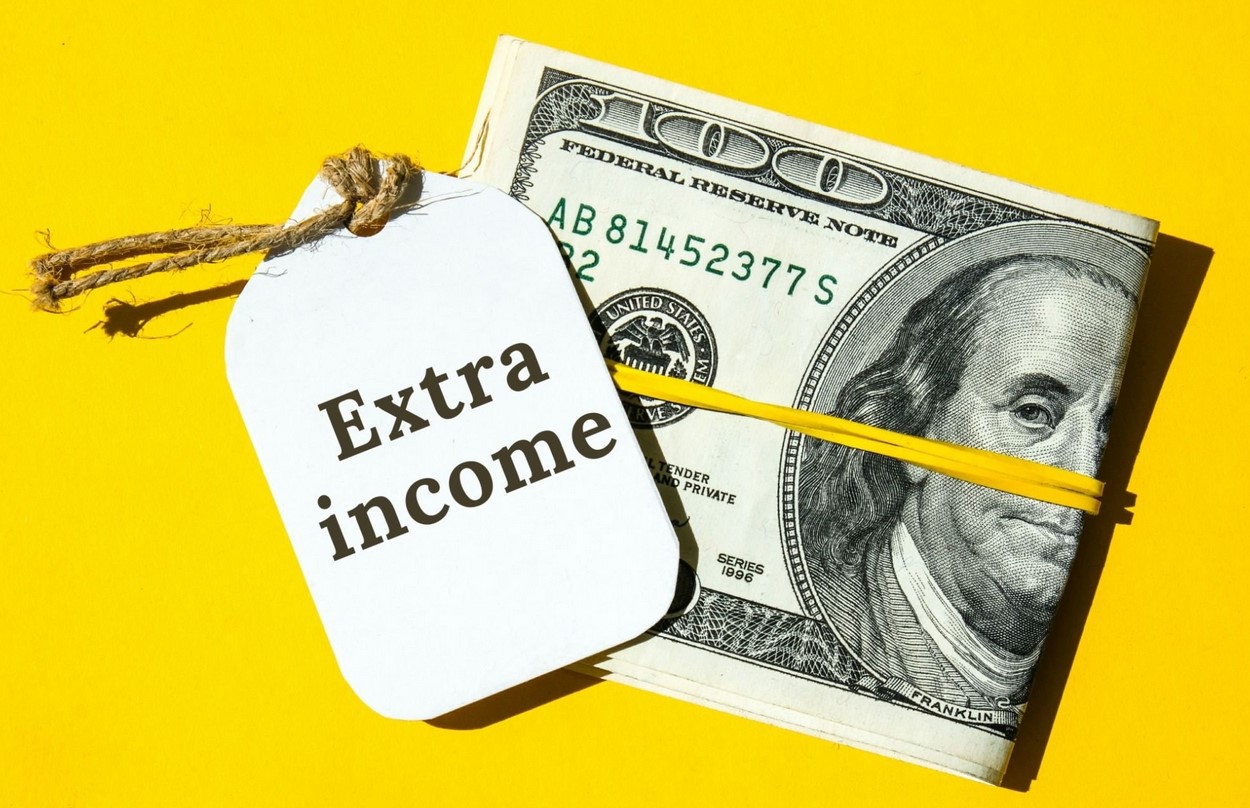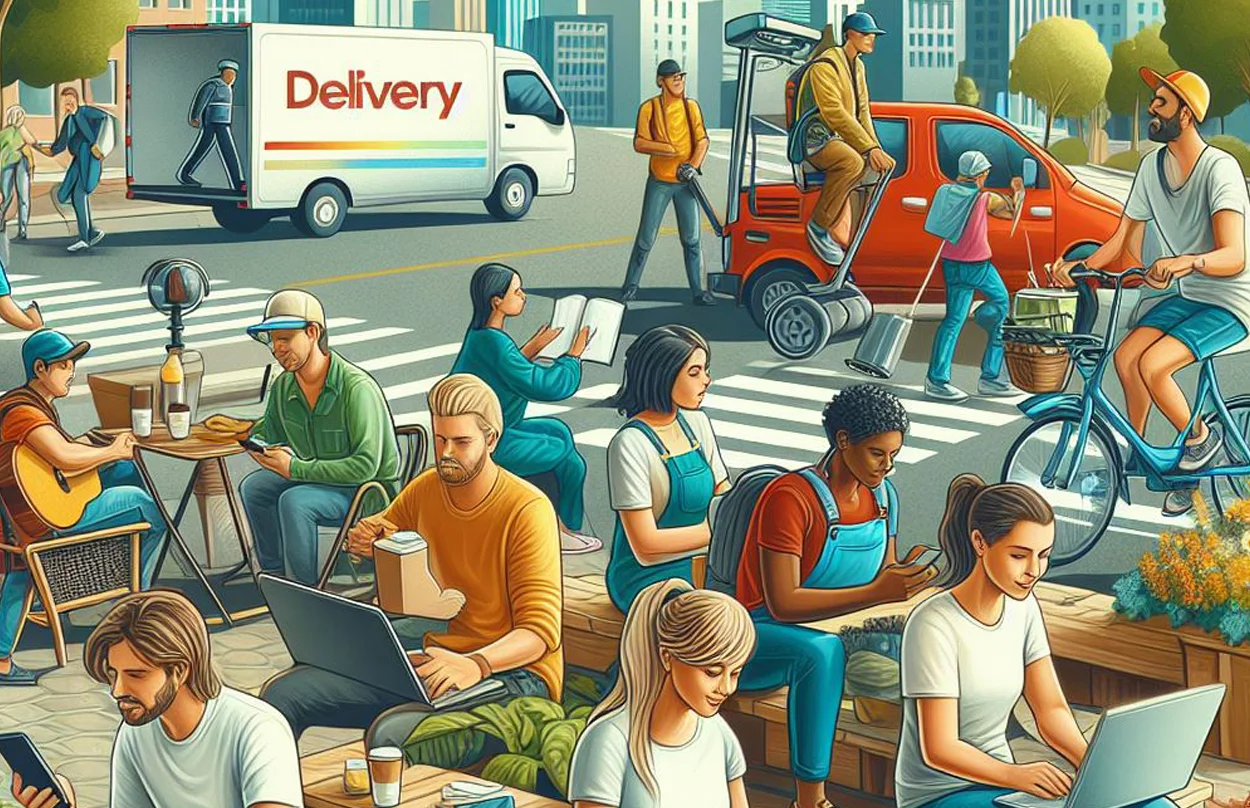How Gig Economy Benefits Modern Society?

In the United States, it is interesting to know that gig work shows impressive growth and demand, even after COVID-19 Pandemic has gone down.
Due to the pandemic effect, the traditional employment model is gradually changing. More and more businesses and big brand companies are now more interested in hiring people on a contract basis.
We are living in the new age of the ‘gig economy,’ and there are several people who already actively participate in the gig economy. They left behind the bondage of 9-5 traditional employment and joined the flexibility of the gig economy.
The rise of the gig economy in the US, 2023
- At least 59 million American adults participated in the gig economy over 2020, roughly to 36% of the U.S. workforce.
- 16% of U.S adults have earned money through an online gig platform at some point in their lives, and 9% earned income from online gig work in 2021.
- Wages and participation for gig workers grew by 33% in 2020.
- Gig workers contributed around $1.21 trillion to the U.S. economy in 2020, which is roughly 7% of the total U.S. GDP.
- By 2023, experts predict that 52% of the American workforce will have spent some time participating in the gig economy.
Data source: Zippia.com
Let’s learn more about the gig economy and how it benefits modern society.
What gig economy meaning?
Simply put, a gig economy is a modern approach to a free and open market system where the contracting the work and the independent workers providing the work participate.
The gig economy involves the labor exchange between businesses or companies and independent workers for short-term contracts or freelance work.
Gig workers are usually paid for completing their work, projects, or gigs. For instance, a delivery driver in the UberEats gets paid for every daily food delivery.
What jobs are part of the gig economy?
There are many types of gig jobs available in the gig economy, but some popular categories are:
- Freelancing:Freelancers who work for themselves without bonding with long-term employment contracts with companies or organizations. E.g., Upwork and Fiverr.
- Delivery Gigs: Gig delivery drivers are like independent contractors enrolling with different delivery companies. Delivery apps like DoorDashand Shipt provide work to such gig workers to transport various food and groceries to customers’ doorstep.
- Ridesharing Driver: Due to the formation of various ridesharing apps like Uberand Lyft, traditional taxi services provider are now switching to such mobile base platforms. Taxi drivers first need to enroll in ridesharing apps, and using their mobile and vehicles must transport the passengers to their respective locations. On every successful ride completion, they earn a commission.
- Independent Contractors: Individuals who work for a business, company, or person are responsible for providing goods or services based on written or verbal contracts or agreements. Unlike traditional employees, independent workers are self-employed and earn money for every working hour. Amazon Flex and Postmates are some examples of gig apps for independent contractors.
#Get insight: Same Day Pay Jobs- 2023 (Get Paid ASAP)
Top 5 biggest benefits of gig economy for modern society
With the fear of the Covid-19 pandemic and the coming economic recession in 2023, several people were either unemployed or underemployed. Big companies like Google, Facebook, and Twitter continue to lay off their employees.
Did you know? 1 in 3 companies anticipate laying off 30% or more of the workforce in 2023.
As a result, the demand for temporary work is gradually increasing and expanding the ‘gig economy.’ Unlike traditional working, workers in the gig economy find new opportunities, working flexibility, and new ways to supplement their income.
Gig economy facilities the millennial generation of workers to balance their life and work demands. Anyone can access the gig apps and choose the work and income per their skills and wish.
Instability in the U.S. economy because of Covid-19 and Russia-Ukraine war increasing the demand for gig work and gig workers. It means the gig economy benefits businesses and modern society.
Here are five biggest benefits of gig economy benefits.
- Flexibility: Unlike the 9-5 job culture, the gig economy provides enough flexibility for working hours. For example, it is up to you when to work and for how long.
- Freedom: Gig economy workers are self-employed, which means they are their bosses. They have complete freedom to choose work, projects, and clients of their own choice.
- Easy to join: With the expansion of the gig economy, many gigs platform and jobs are easy to join and require minimal eligibility criteria.
- Variety of projects: Gig workers in the gig economy find a large variety of work compared to traditional employees working full-time for a single company. Gig workers can work for various businesses and companies at a time.
- No income barrier: Based on your talent and working efficiency, gig workers may earn more compared to 9-5 employees. In the gig economy, the more you work, the more you earn. You can even generate income from multiple projects and clients, so you’ll still have a backup if you lose one.
What next for the gig economy?
With the current odd economic environment, global progress of new technology, and the rise of automation in various industries, it is sure that the gig economy will continue to grow and have the potential to replace the traditional labor markets.
Companies and businesses gain more profit from the flexibility of the gig economy, but they should stop the harmful and sometimes life-threatening impacts on their gig workers. The government should endorse the gig economy by making good policies for gig workers.
Whether it’s the Covid-19 pandemic or the global recession, it is proved that the gig economy always stands for the betterment of society.
Can gig workers get a loan?
Did you know that there is a variety of loans for gig workers? Yes, some lenders accept income from the gig economy to approve a loan. You can apply for payday loans, installment loans, credit union loans, title loans, and credit card cash advances.





